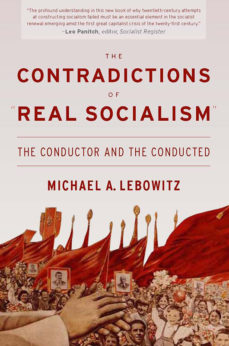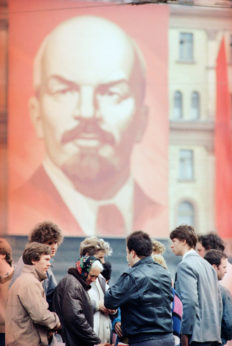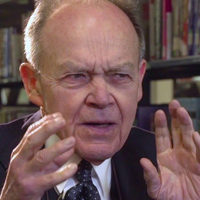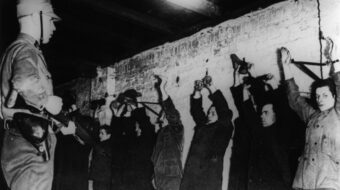
Michael Lebowitz’s The Contradictions of “Real Socialism”: The Conductor and the Conducted is mainly an old New Lefty’s argument about why the Soviet Union and the Eastern European socialist governments collapsed in 1989-91. Although it was published some seven years ago, with interest in socialism on the rise, books like this one are making the rounds once more as people grapple with questions about what socialism meant in the past and what it means today. That makes a retrospective review of the book worthwhile.
By the quotes in his title, “real socialism,” Lebowitz implies right away that Soviet socialism was not real, true, Marxist socialism. It was fake socialism. He pushes three lines to explain post-Stalin Soviet society as he thinks it really was:
 (1) The Soviet mode of production was not the working class collectively owning the means of production, working them, deciding how to use them, improving them, and distributing the product. Instead, the Soviet state owned the means of production, and the Communist Party of the Soviet Union (CPSU) decided in the workers’ name, in fact only according to its own centralized economic plans, how to use the means of production. Quoting Marx as he likens old-fashioned owner-manager capitalists to the conductor of an orchestra, Lebowitz presents the CPSU as fake socialism’s conductor, directing the workers as “the conducted.” This corresponded with Soviet relations of production, for which Lebowitz applies a military metaphor: The Soviet mode of production was a “vanguard mode of production”; the relations of production, “vanguard relations.”
(1) The Soviet mode of production was not the working class collectively owning the means of production, working them, deciding how to use them, improving them, and distributing the product. Instead, the Soviet state owned the means of production, and the Communist Party of the Soviet Union (CPSU) decided in the workers’ name, in fact only according to its own centralized economic plans, how to use the means of production. Quoting Marx as he likens old-fashioned owner-manager capitalists to the conductor of an orchestra, Lebowitz presents the CPSU as fake socialism’s conductor, directing the workers as “the conducted.” This corresponded with Soviet relations of production, for which Lebowitz applies a military metaphor: The Soviet mode of production was a “vanguard mode of production”; the relations of production, “vanguard relations.”
(2) But not really, for on account of the vanguard’s faults in planning, the managers of its “enterprises” continually lied, improvising to pretend to fulfill orders or surpass them to earn bonuses. Their mismanagement resulted in the infamous Soviet shortages, hoarding, periodic rushes in production, useless products, etc. These managers had no rights in the “enterprises” they managed, so they could not be capitalists. But acting outside the central plan, they “embody…the logic of capital,” making “a second economy.” Quoting a Soviet economist in the 1920s, Lebowitz presents vanguardism and managerism as “two mutually hostile systems.”
(3) The fatal Soviet fault: The vanguard would not let the collective working class take power. The only way to stop the managers’ drive toward capitalism would have been for the collective working class to seize the means of production from them and manage the economy “from each according to ability, to each according to need.” If the vanguard had dissolved its fake socialism, then vanishing into thin air, workers could have made real, true socialism. “The fundamental contradiction of ‘real socialism’” was “the domination of workers by the vanguard.”
Worse yet, when the vanguard finally failed, workers on their own did not try to take power. “Vanguard Marxism” had so “deformed them” ideologically that they believed in “the division between thinking and doing” and could not imagine seizing the means of production. Under the vanguard’s misinformed, erroneous, ineffective directions and fake Marxism, all the while dealing with managers feathering their own nests, Soviet workers stuck to the Soviet “social contract.” For their submission to the vanguard and to managerial connivance, Soviet workers received benefits impossible under capitalism, stable prices, free health care, free schools, subsidized food, housing, and fuel, and above all security in their jobs. So sure were workers of their jobs that they stole supplies and products from work, stole their own labor, for their own business in the “second economy,” or faked it, simply for rest and recreation. The vanguard unwittingly but inevitably made the working class into an army of thieves and loafers. No surprise then that in the crisis of 1989-91, when a truly socialist proletariat could have trashed the managers and made real, true socialism, the vanguard-corrupted Soviet proletariat remained passive.
On account of its contradictions “real [fake] socialism” was doomed to fail sooner or later—and for all the harm it did workers, ending in capitalism, good riddance to it!
This is the first two-thirds of the book. The rest is mostly Lebowitz’s notion of what true socialism is. Marx did not get it, he thinks, because he did not “go beyond Capital…to focus upon the side of the worker.” Lebowitz thinks he goes where Marx did not, to understand “the political economy of the working class.” His true socialism is not only “social ownership of the means of production” plus “social production organized by workers,” but also, basically, a “moral economy” of “solidarity,” or “communality.” It is a “solidarian society.” Without a conductor, it will be “a society of associated conductors,” playing not symphonies, but “jazz.”
Lebowitz cautions it will take struggle. Mainly the working class will have to overcome its own old “deformations,” learn to unify “thinking and doing.” But once it does, it will make “the ‘key link’ of human development and practice.” True socialism will be the daily practice of “protagonistic democracy in the workplace, protagonistic democracy in neighborhoods, communities, communes,” people “transforming themselves into revolutionary subjects.”
Lebowitz allows he is not against “leadership in the struggle,” is for “ending capitalist ownership of the means of production by all means possible,” and recognizes the need for “the inherited state,” temporarily, for a new, truly “socialist mode of regulation.” He has not explored these questions, he writes in excuse, only to keep his focus on “real socialism.”
If you have never read much about the Soviet Union, or read only hostile criticism of it, Lebowitz’s book may seem brilliant, inspiring, even rousing. It may lead you to cry, “Yes, of course! Now I know what to do!” But if so, reader beware.
Lebowitz argues in a way easy to read and winningly didactic, at least for the innocent. And he seems to know Marx inside and out. It makes sense, as he taught Marxism at Simon Fraser University for 35 years. He has said that is how he learned Marxism, teaching it to his students. Most convenient for a new reader: Like many professors he often quotes himself, over and over, from his earlier books and in this book, so that if you lose his drift, be sure he will soon remind you.
But on any close, serious examination—in the hard, final exam of real live class struggle—Lebowitz’s argument goes to pieces. It is often interesting, but loaded with misconceptions, false assumptions, confused metaphors, abstractions, contradictions, credulities, logical fudges, and misleading mixes of Marx quotes. No doubt Lebowitz believes what he writes. And if you want to read his vision of pie in the sky, here is your book. But if you have serious commitments on earth, like taking down capitalism and imposing working-class rule, better tend to them.
Never mind that Marx referred to “the conductor” but briefly (in three quite separate remarks), and not to frame a theory. Or that he foresaw capitalists combined in vast new “credit system” of “collective capital.” Never mind either that really a vanguard does not conduct anything. It only goes into action in the van, up in front. And let it pass too that interviews asking Soviet workers who stole from their workplace if they thought that was alright do not show “working-class moral economy.”
These and other minor mistakes, lapses, and malaprops do not in themselves badly damage Lebowitz’s argument. But several other major faults do. The biggest is Lebowitz’s very peculiar notion that Marx ought to have completed his work by a study like Capital, but on labor, titled, say, Labor. Though a veteran teacher of Marxism, Lebowitz thinks Marx wrote Capital as “the political economy of capital,” and therefore to complete his work he owed workers a book on “the political economy of the working class.”
This is false. The subtitle of Capital is “A Critique of Political Economy,” just so, full stop. Marx planned several volumes on the totality of the capitalist economy and capitalist economics. It is about capitalism in its essential parts, fundamental among them labor, all parts in their particular and combined operations. It is an economic analysis—Marx’s explanation of how the world’s dominant mode of production comprised essentially dead labor (means of production) and live labor (able-bodied and able-minded workers), how it connected them for production, reproduced itself in continual expansion and accumulation of surplus value, and made its crises. It’s about how and why capitalists inevitably exploit workers, sometimes more, sometimes less, but always exploiting them. Capital is—in Marx’s view HAD TO BE—all about capital AND labor.
Thinking he goes beyond Capital, Lebowitz wheels off on his “political economy of the working class.” But his analysis is not economic. It is social and cultural, actually a rehash of old liberal and New Leftist analyses of workers’ alienation. Cultural analysis may be worthwhile, but it is not Marxist political economy.
A second major fault is false assumption. Lebowitz claims his critics presume they know everything about “real socialism,” belong to “political sects,” consider themselves “the chosen [Commies!].” Yes, there are real, live dogmatists. But what of others, including Communists, who know as much about “real socialism” as Lebowitz does, or more, and are not dogmatists? Lebowitz simply excuses himself from debating them.
A third major fault is Lebowitz’s abstraction. Quoting Marx (over and over) on “organic systems,” he nevertheless relies on once-internal critics of “real socialism.” His big shot was once a young Hungarian Communist economic planner, János Kornai. Disappointed in Budapest, Kornai converted to “neo-classical” economics, emigrated to the USA, got tenure at Harvard, and last year received Solidarnosc-funder George Soros’s “Open Society” prize. On Kornai’s abstract “models” Lebowitz represents capitalism and fake socialism as if each were a total separate unit, a whole in itself, everything in it a perfectly fitting, bonded part of it. Each economy quite independently of the other is in its own constant “renewal,” reproducing itself, even in “contested reproduction,” always only internal factors, nothing external.
The fault here is not lack of realism, all models being only imitations of reality, but the abstraction’s limits in space and time. As for space, Lebowitz ignores Earth, where really the two systems were USSR and USA—mortal economic, political, and ideological enemies. Absent besides are Earth’s many diverse non-systems, neo-colonies, colonies, loose territorial complexes of odd pieces and parts which the mortally rival systems vie with each other to dominate and use, each for itself against the other. You could model all that. Lebowitz does not.
Missing also are two enormous realities of critical concern to socialism, “real” or real. Following his neo-classical star Kornai, Lebowitz does nothing on the Cold War. And without a word here on Lenin, he does nothing on imperialism, the national question, or national liberation. His incredible abstraction has no armed conflict, nor incidentally any race, ethnicity, or gender.

As for time, Lebowitz opposes thinking of “stages.” He wants “process,” all continuous and ever on the rise: No stairs to climb, or landings where you might have to fight an enemy for the next floor, but an escalator. So, incredibly, there is no revolution, only “revolutionary practice” before the revolution and after. And once the working class somehow takes power by “process,” class struggle ends, for good. That interlude he grants when workers in power may use “the inherited state” on disagreeable capitalists or managers, maybe too on still misbehaving fellow workers, will not be a “stage,” only “a period.” (Lenin called it “a phase (step or level, stage)” toward the final stage, “communism.”). Lebowitz does not model the hair he splits between “stage” and “period.” But it seems workers in “the process” of “human development” through their “revolutionary practice” will soon make it to heavenly socialism.
Time really is a mess to abstract. But Marxists especially have to do it, selecting among countless scattered facts to explain how past exploitation made present exploitation and how to break these chains. Their explanations are all the more robust and sharper when they rely on “primary sources,” first-hand evidence, from the past and present. Marx studied abundant primary sources to write Capital. Lenin did likewise to write his first book, a history of capitalism in Russia.
Weirdly for a Marxist, a gross fault, Lebowitz explicitly excludes the past from his account of “real socialism.” History, critical to explain what really was wrong—Russian, Soviet, or any other history—he excuses himself from doing on the promise he will do it later (payment still pending).
He waxes on how his true socialism will satisfy human “needs,” but he does not consider real contradictions, say between material and moral needs, or “communal needs” now and a decade or generation from now, or between neighborhoods, local communities, multi-local communes, and national, much less international, communion. He believes “protagonistic democracy” will make the contradictions all go away. But this is not strategic thinking, critical for organizing. It is wishful thinking, the pseudo-logic of exhortation, most reminiscent of evangelical preaching.
About his quotations of Marx, only a few words: After 35 years of teaching Marx, Lebowitz evidently still cannot differentiate between Marx’s economic science, political and economic journalism, political polemics, economic history, political programs, correspondence, manifestoes, philosophical criticism, notes, drafts, and all the other ways Marx put his terrific mind on paper.
And Marx always wrote in contexts, which is how you have to read him to understand him. Lebowitz claims he knows Marx is not Scripture. But in practice, he takes it like a good bibliolater. He quotes Marx, but picking his verses, always out of context, some passages (over and over) he thinks slam-dunk prove his own straight-up Marxism—and others he grades incomplete and proceeds on his own to complete, to improve Marx. Oddly, his improved Marx looks for all the world like a sweet anarcho-communist, right at home in Solidarnosc.
Lebowitz and old New Lefties who admire him have no more than anarcho-communism to offer. For co-ops and communes, coalitions with any movement or party that will strengthen working-class struggles, Communists should cheer. But going into a decisive crunch, do not count on allies who want everything as free as jazz before decisive action.
Here is the main lesson for Communists: Despite all his Marxist claims, Lebowitz is for making the world better by working-class mutualism. He does not do concrete economic, political, or social analyses of real capitalism or socialism. He does not get into mutinous working-class power, working-class force in resistance to capitalist force. He does not think strategy, tactics, war, revolution. He does cultural socialism fine, but that is not much good when real push comes to real shove. When a crisis opens so deep that workers really can take capitalism down, they will have to bring it down “by force,” for the beast will not go down any other way. New Leftism will not disappear, but its populist fantasies will not then fortify working-class rule for the decades needed to build real socialism.
The Contradictions of “Real Socialism”: The Conductor and the Conducted
By Michael Lebowitz
Monthly Review Press, 2012, 192pp.










